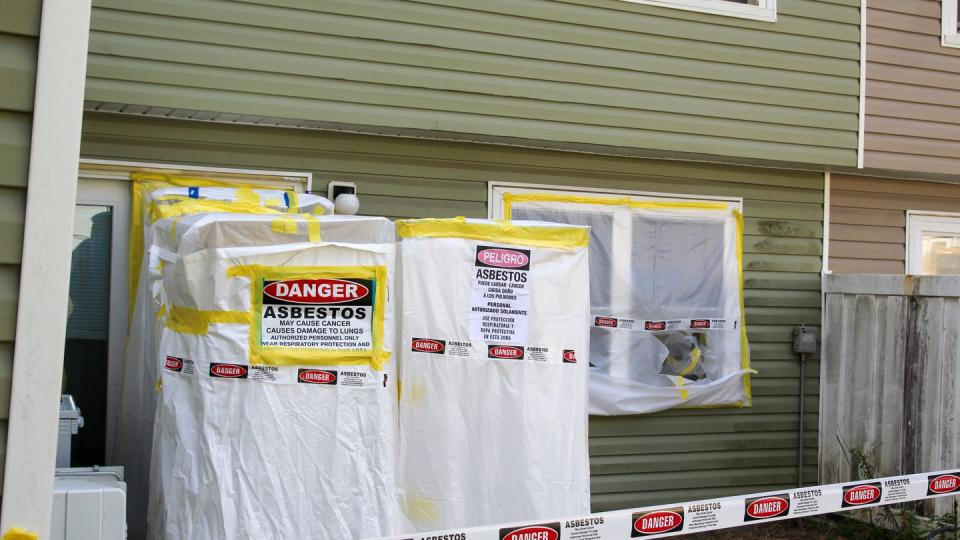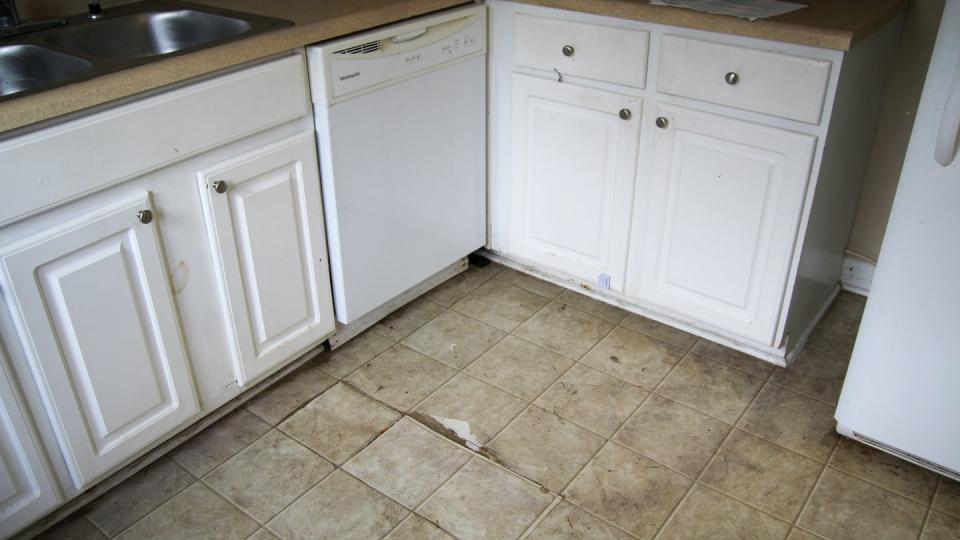Army secretary tours Fort Eisenhower homes after Senate probe, audits
FORT EISENHOWER, Ga. — Housing conditions here have caught the attention of many in recent years, including the Justice Department, Pentagon watchdogs and the U.S. Senate.
Add Army Secretary Christine Wormuth to the list. She inspected a pair of homes at the Augusta, Georgia, installation on Oct. 27 after overseeing its renaming ceremony that morning. Army Times accompanied Wormuth for the housing inspection and spoke with her in a press conference afterward.
During the tour, Wormuth spoke with officials from Balfour Beatty, the private company that administers family housing at Eisenhower, as well as local leaders including the installation’s commander, Maj. Gen. Paul Stanton, and Col. Reggie Evans, the garrison commander.

Balfour Beatty’s military housing practices, including falsified maintenance records, led it to plead guilty to criminal fraud allegations and settle a federal lawsuit in 2021. The company’s Fort Eisenhower housing arm — then known as Fort Gordon Homes — also received scrutiny from Sen. Jon Ossoff, D-Ga., and his Senate investigative panel. In the investigation’s wake, the Army did its own internal investigation and stopped paying performance bonuses to the contractor.
The first home inspected during Wormuth’s visit, part of the company’s renamed Providence Family Homes collective, was vacant and awaiting renovations. Its previous residents moved out in June 2022. Balfour Beatty’s project director, Karsten Haake, also a retired Army aviation officer, said the house needs around $42,000 in repairs to address issues including damage from an upstairs bathroom water leak and asbestos abatement for the ground level’s flooring.
Around 236 Eisenhower homes require similar asbestos abatement and a $5.1 million cash infusion from a joint reinvestment account (funded by residents’ housing allowances) is bankrolling the work for approximately half of them. And in the fiscal 2024 defense policy bill, which hasn’t yet become law, the service requested an additional $50 million for new home construction here.

Yet Wormuth recognizes that won’t be enough.
“What we’re going to need eventually is…a generational investment in housing,” she said. “The Army has the largest inventory of barracks and housing of any of the services…and we can’t [renovate or replace] all of that as quickly as I would like inside of the Army’s budget.”
Wormuth also acknowledged that high interest rates in the current economy make it difficult for housing companies to secure private funding, and Haake noted that cash-flow restrictions, such as reserve accounts mandated by federal law for privatized military housing companies, also contribute to the financial squeeze.
Before touring a renovated home, Wormuth pulled the installation’s leaders — Stanton and Evans — aside and pointedly discussed barracks conditions there. The soldier living in the updated home, Spc. Jayden Brinkerhoff, echoed her concerns from the service member’s perspective. He said that before getting married and leaving the barracks, he faced mold and other problems there.

Brinkerhoff’s home featured new flooring in most of its living space, and updated appliances and fixtures. But he told the Army’s top civilian about his struggle to navigate the bureaucracy necessary for repairs to his older flooring and air conditioning unit, as well as his concerns about a previously repaired leak in his upstairs bathroom. Brinkerhoff also wanted to build a fence in the home’s backyard for his dog, but felt he was being directed in circles when he reached out to housing officials for instructions.
Although Wormuth praised “the big difference” she saw in the specialist’s house compared to the dated home, she said it’s too early for Balfour Beatty to have the Army’s full trust again. She reminded reporters that the service is still withholding performance bonuses from the company and has a termination clause that it can exercise if problems continue.
However, Wormuth expressed optimism that the local community is on the right track.
“The sense I got in talking to [Haake] and partners is that they’re really invested in being not just good partners, but also rebuilding trust,” Wormuth said. “They’re doing a lot more to make sure that they’re able to retain their workforce and reduce turnover so that the maintenance workers are able to respond more quickly.”
And at least one work order was resolved quickly during the visit.
As Wormuth and her entourage drove away, Haake made some phone calls. Within five minutes, a pair of vans pulled up to Brinkerhoff’s house, and maintenance technicians quickly jumped out and started turning wrenches on his air conditioning unit.

